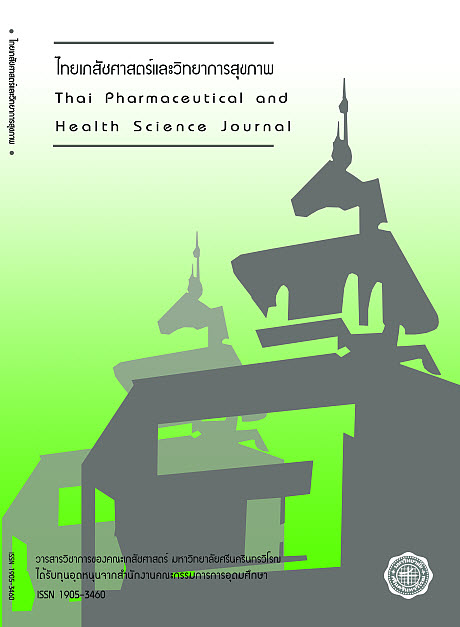The Effects of Program to Develop Emotional Quotient for Preschool Children in Rangsit Home for Babies
Abstract
Objective: To examine effects of a program to develop emotional quotient(EQ) for preschool children in Rangsit Home for Babies. The program wasguided on the constructivist’ s concept (Driver and Bell, 1986). Method: Inthis quasi–experimental research, two-group pretest-posttest design wasused. The study sample consisted of 50 preschool children 4 – 5 years oldin Rangsit Home for Babies. Using a matched pair technique, 25 childreneach were assigned to either experiment or control group. The controlgroup received usual activities in Rangsit Home for Babies while theexperimental group received 30 sessions of the program to develop EQbased on the constructivist’s concept (50 minutes per session). Theprogram was tested for content validity by a panel of three experts beforeimplementation. Emotional Intelligence Assessment was used to collect EQdata at three time points: pre-test, post-test, and at one-month follow-up.Data were analyzed using repeated measure ANOVA and t-test. Results:The EQ scores at post-test and 1-month follow-up in the experiment groupwere significantly higher than the pre-test score (P < 0.05). EQ scores inthe experiment group at post-test and 1-month follow-up were significantlyhigher than those in the control group (P < 0.05 for both comparisons).Conclusion: The program to develop EQ based on Constructivist’ sconcept process in learning activities can increase sustainable emotionalquotient score for preschool children in Rangsit Home for Babies. Theprogram could be implemented in other preschool child welfare institutionsto prevent child mental problems and improve their quality of life.Keywords: emotional quotient, preschool children, Rangsit home for babiesDownloads
Download data is not yet available.
Downloads
Published
2012-02-14
Issue
Section
Original Research Article - นิพนธ์ต้นฉบับ
License
ลิขสิทธิ์ (Copyright)
ต้นฉบับที่ได้รับการตีพิมพ์ในวารสารนี้ถือเป็นสิทธิ์ของไทยเภสัชศาสตร์และวิทยาการสุขภาพ การนำข้อความใด ๆ ซึ่งเป็นส่วนหนึ่งหรือทั้งหมดของต้นฉบับไปตีพิมพ์ใหม่จะต้องได้รับอนุญาตจากเจ้าของต้นฉบับและวารสารก่อน
ความรับผิดชอบ (Responsibility)
ผลการวิจัยและความคิดเห็นที่ปรากฏในบทความเป็นความรับผิดชอบของผู้นิพนธ์ ทั้งนี้ไม่รวมความผิดพลาดอันเกิดจากเทคนิคการพิมพ์




